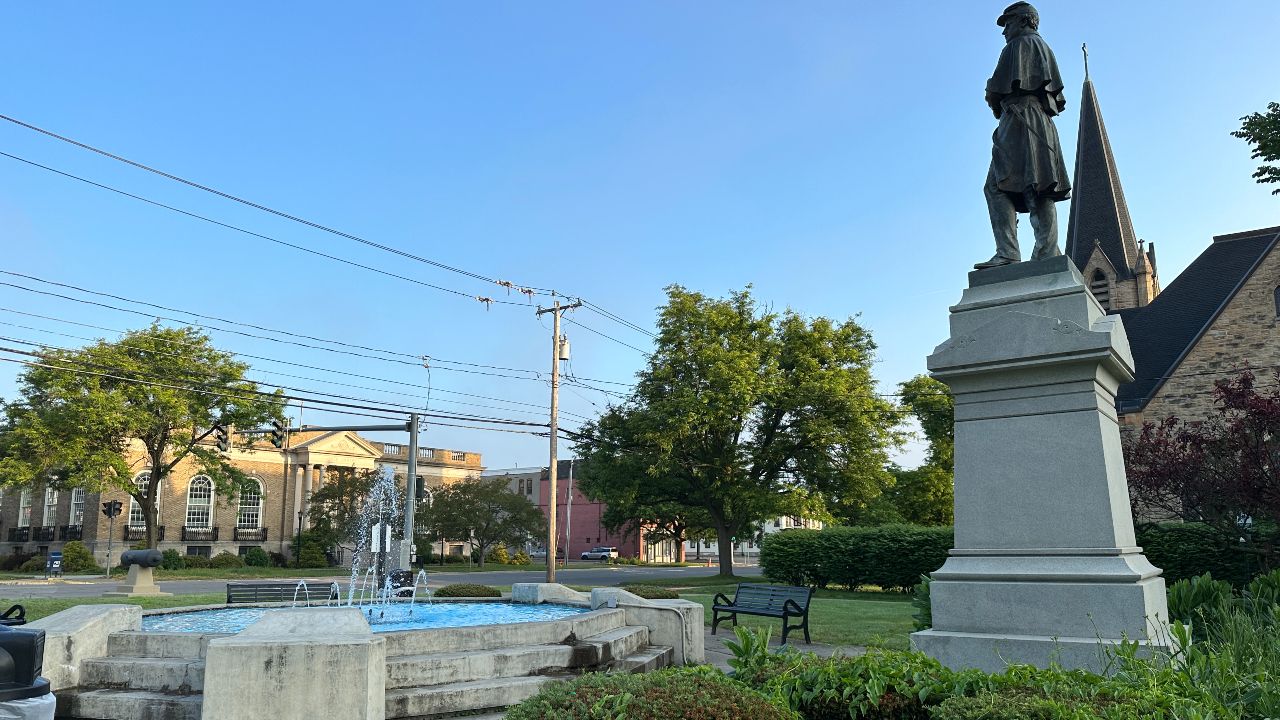For older LGBTQ+ people, now is likely not the first time they have experienced the subject of LGBTQ+ equality becoming a national political issue.
Spectrum News 1 sat down with a few of them at SAGE Upstate, an organization geared toward offering support and resources to these older LGBTQ+ people.
What You Need To Know
- For older LGBTQ people, now is likely not the first time they have experienced the subject of LGBTQ equality becoming a national political issue
- We sat down with a few of them at SAGE Upstate, an organization geared toward offering support and resources to these older LGBTQ people
- They discussed the history of the push for equal rights through the lens of their personal experiences, how right now compares to other moments in LGBTQ history, and their message for individuals who are still working to find their place
They discussed the history of the push for equal rights through the lens of their personal experiences, how right now compares to other moments in LGBTQ+ history, and their message for individuals who are still working to find their place.
“I grew up in a very conservative religion, where being gay was not a possibility,” said Joseph Downing, a SAGE Upstate member. “I married a woman and had five children. We were both intensely unhappy.”
Downing says his fear of coming out was overpowering, and it ran parallel to husband William Doswell’s similar experience long before they met
“The 50s, when I was a child, I was mentally ill. I was crazy, I was sinful,” he said of the labels LGBTQ+ people commonly received at the time.
He and Downing met through SAGE Upstate. The organization is now led by Executive Director Kim Dill, who joined our discussion.
“People my age and older, they have the whole movement in their memories,” she said. “You are looking at somebody who’s been through all of those things; being called a criminal or mentally ill, if you came out before the early 70s, you were considered mentally ill.”
All three say the Stonewall Riots in New York City in 1969 and the movement that followed helped to ease those fears, but it also meant that as more people came out, more people grew to accept their LGBTQ+ loved ones. For Downing that included family, friends from church, and his ex-wife and children. He says he and Doswell live near his ex-wife, and they have a friendly relationship to this day.
“It wasn’t just this boogie man of evil people,” he said. “It’s harder to look your son in the face and say, ‘Here is this beautiful son and I’m going to suddenly turn my back on him because I found out this thing about him I didn’t know about before.’ ”
Downing and Doswell emphasize that progress has been widespread, but there are still people who cannot safely come out.
“People really do reject their children,” Doswell said. “But for the most part I think people adjust and I think that very often there’s a surprising result were people realize I can let go of that bias and that fear.”
That said, all three are concerned by the current political climate. In particular, they say, the idea being expressed by some individuals and leaders that more visibility for LGBTQ+ people in the media equates to “influencing children.”
“It’s ridiculous. It’s absolutely ridiculous,” Downing said. “It’s a fear tactic that has no basis in reality.”
“It’s the exact same thing if a man and a woman get married, they are in a relationship,” Dill added. ”They have a sexual orientation. It’s the same thing for us, but somehow it’s put in this different category that is somehow recruiting kids.”
They stress that rather from their perspective, representation in media isn’t about “recruiting kids,” but including even minor characters in media who are LGBTQ+ people is important to prevent the lasting psychological issues that older LGBTQ+ people have experienced from happening in younger generations.
“It damages your mental health considerably when you’re under the false impression that you’re the only person who feels this way,” Downing said.
“I’m still getting over it. I think most of us are still getting over it. That messes you up,” Doswell said of the isolation young LGBTQ+ people often feel.
They say in the spring of 2023 there is an unease among the LGBTQ+ community, one that echoes their past. A past that wouldn’t be complete without discussing the AIDS epidemic of the 1980s.
Downing says it was a time of minimal support from the government or the public, a crisis in which he says the community was mostly forced to mobilize from within.
“It was [a] revolution. That’s what the 80s was about. We were feeling the strength from the liberation of the 1970s and when a crisis hit that was really traumatic, that energy I think it sustained people even as they were losing their lives,” he said.
So why celebrate Pride Month? These older LGBTQ+ people say it’s a reminder of the power of activism, both in the early 1970s, during the AIDS crisis in the 1980s, and beyond as well as an opportunity for older LGBTQ+ people to send a message to a younger generation they say may be watching the news and experiencing those fears they held many years ago for the very first time.
“You’re not alone, even if you don’t know anybody else at this time in your life, there are other people out here, and there are other people who live through this kind of stuff and survive, and they will too,” they said.
Anyone interested in reaching out to SAGE Upstate to learn more about their resources and activities geared toward older LGBTQ+ people can visit their website or reach out to them directly.







